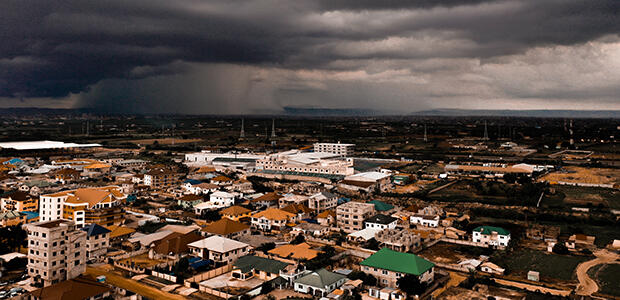Working Paper
Explaining gender differences in preference for self-employment among tertiary graduates in Ghana
We examine gender differences in ambitions and expectations of jobseekers concerning self-employment, an increasingly proposed option for youth in economies with limited wage employment. Analysing survey data on 2,036 tertiary graduates in Ghana, we...
Journal Article
Gold Mining Pollution and the Cost of Private Healthcare
To attract greater levels of foreign direct investment into their gold-mining sectors, many mineral-rich countries in sub-Saharan Africa have been willing to overlook serious instances of mining company non-compliance with environmental standards...
Working Paper
Oil discovery and macroeconomic management
This paper analyses the evolution of fiscal and monetary variables in Ghana, from the discovery of oil in 2007 through to 2014. It documents the deterioration of fiscal and monetary discipline over this period, which resulted in a rebound of debt, a...
Working Paper
South-South labour migration and the impact of the informal China-Ghana gold rush 2008–13
This paper examines irregular South-South migration from China to Ghana, and the role it has played in transforming livelihoods and broader developmental landscapes. It looks at the entry from the mid-2000s of approximately 50,000 Chinese migrants...
Working Paper
Following in their footsteps
The decision to migrate is often influenced by the experience of earlier migrants from one’s household. Earlier migrants provide information on likely opportunities and potential risks and can offer support at destination to later migrants. We...
Journal Article
The labour market impact of COVID-19 lockdowns
In this study, we provide causal evidence of the immediate and near-term impact of stringent COVID-19 lockdown policies on employment outcomes, using Ghana as a case study. We take advantage of a specific policy setting, in which strict stay-at-home...
Working Paper
Rural financial intermediation and poverty reduction in Ghana
The financial sector in rural areas, where most of the poor people in sub-Saharan Africa are found, has transformed massively in recent times, notably through the increased penetration of several types of rural financial intermediaries in addition to...
Working Paper
Domestic savings in sub-Saharan Africa
One essential condition of economic progress in any society is an ample supply of savings, which depends on the growth of real capital.Economists agree that higher investment rates will lead to higher growth. Thus, domestic savings is considered an...
Working Paper
Humanity over economy: biopolitical responses to the COVID-19 pandemic in Ghana
This study posits that pandemics should be regarded as complex, open-ended phenomena that cannot be reduced to biology and epidemiology. The research assesses Ghana’s effectiveness in governing the COVID-19 pandemic contrary to apocalyptic...
Working Paper
Residual capacity and the political economy of pandemic response in Ghana
On the whole, poor countries in Africa and elsewhere seem to have weathered the coronavirus (SARS-CoV-2, or COVID-19) pandemic better than wealthier countries with superior healthcare systems. Using the Ghanaian case, this paper draws on newspaper...
Working Paper
Fiscal decentralization and efficiency of public services delivery by local governments in Ghana
In this paper, we estimate the efficiency of Metropolitan, Municipal, and District Assemblies (MMDAs) in Ghana, and investigate the impact of fiscal decentralization on the efficiency of local public goods and services delivery by MMDAs. Using data...

 Join the network
Join the network







